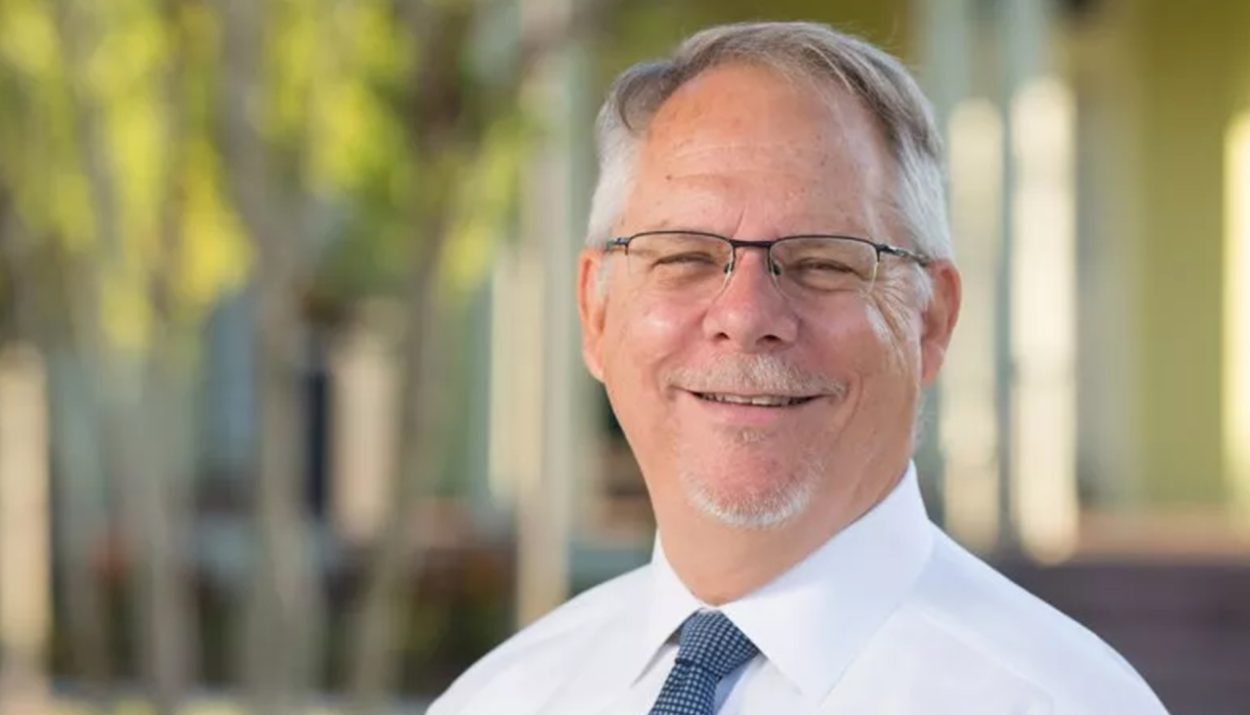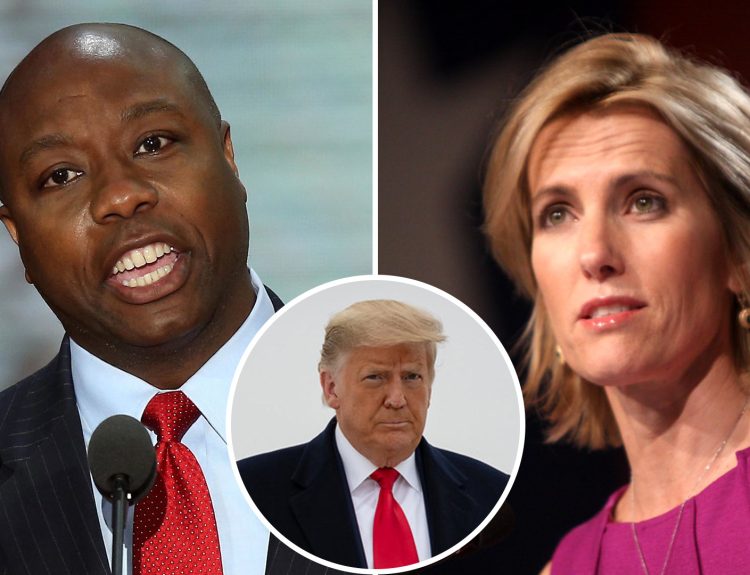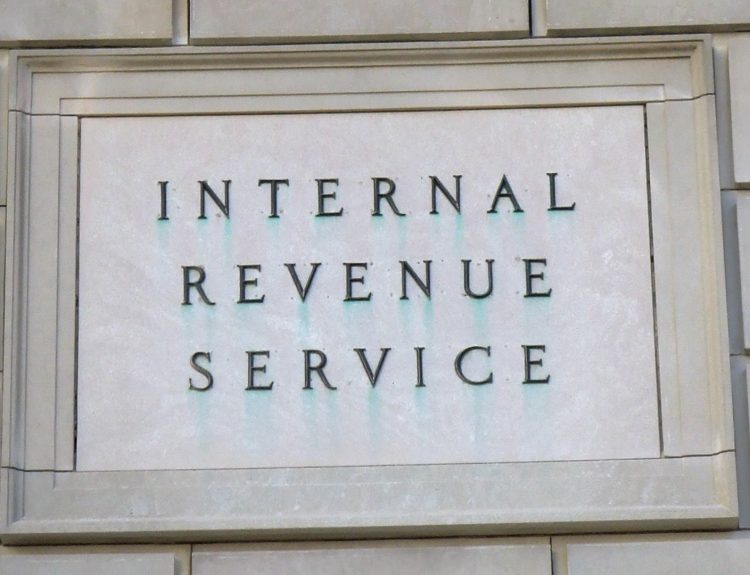The recent victory by Democrat Tom Keen in the special election for Florida House District 35 provides an instructive blueprint for the Florida Democratic Party. Keen was able to flip a previously safe Republican seat by 3 percentage points through an energized volunteer force and by capitalizing on two key issues resonating with voters: property insurance and abortion rights.
The seat was left vacant when former Representative Fred Hawkins departed to lead a state college. In 2022, Hawkins had won re-election by 11 points. Keen’s victory, therefore, represents a massive 14-point swing toward Democrats in just over a year. As UCF political scientist Dr. Jim Clark stated, “In politics, that’s huge.”
Florida Painted Blue
Crucially, Keen was vastly outspent by his Republican opponent, Osceola County School Board member Erika Booth. This suggests that a people-powered grassroots movement can still overcome a financial disadvantage. As Florida Democratic Party Chair Nikki Fried commented, Keen’s win provides “a model that we can then replicate across the state.”
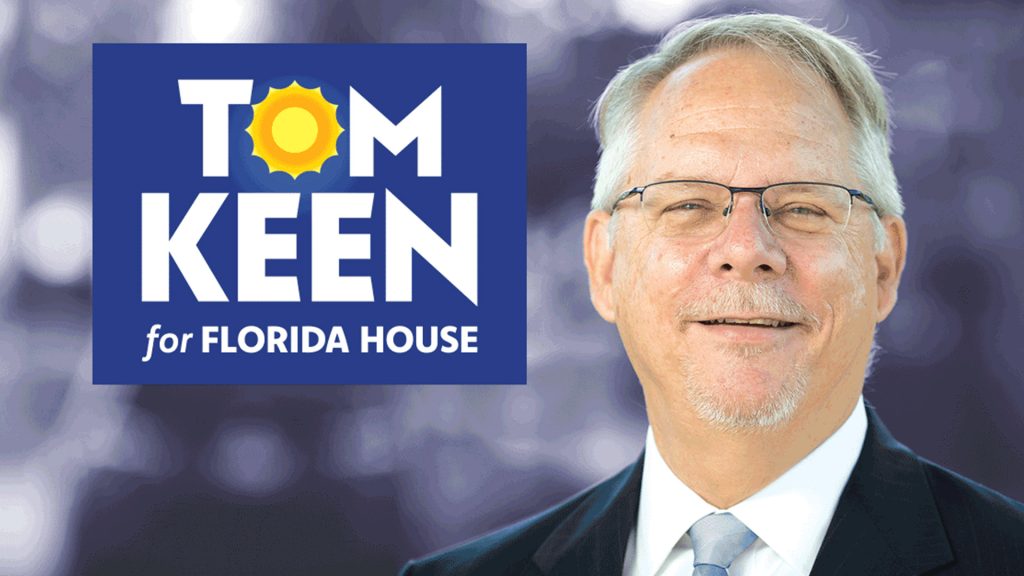
While Republicans enjoy voter registration advantages and demographic tailwinds, Keen’s upset sparks some signs of life for Democrats. Clark cautions that Florida remains a red state, but well-targeted campaigns on issues that resonate locally could produce scattered bright spots for Democrats amid an otherwise challenging landscape in 2023 and 2024.
Context of Previous Wins
The Democrats’ victory in the special election for Florida House District 35 this week builds on recent successes for the party in 2023. In January, Democrat Donna Deegan won the Jacksonville mayoral race by a significant margin. This was seen as a major upset, flipping the seat from Republican control.

The victory in House District 35 likewise represents a notable swing from 2022, when Republican Fred Hawkins won the district by 11 points. On Tuesday, Democrat Tom Keen prevailed by 3 points – a 14-point swing towards the Democrats. As UCF Professor Jim Clark noted, shifts of this magnitude are rare and significant in politics.
Tom Keen vs. Erika Booth
Keen, a businessman and veteran from Lake Nona, campaigned heavily on issues like property insurance and abortion rights. These topics resonated with voters who feel the impact of rising rates and controversial policies. Keen also mobilized a robust volunteer campaign of hundreds of supporters knocking on doors and making calls.
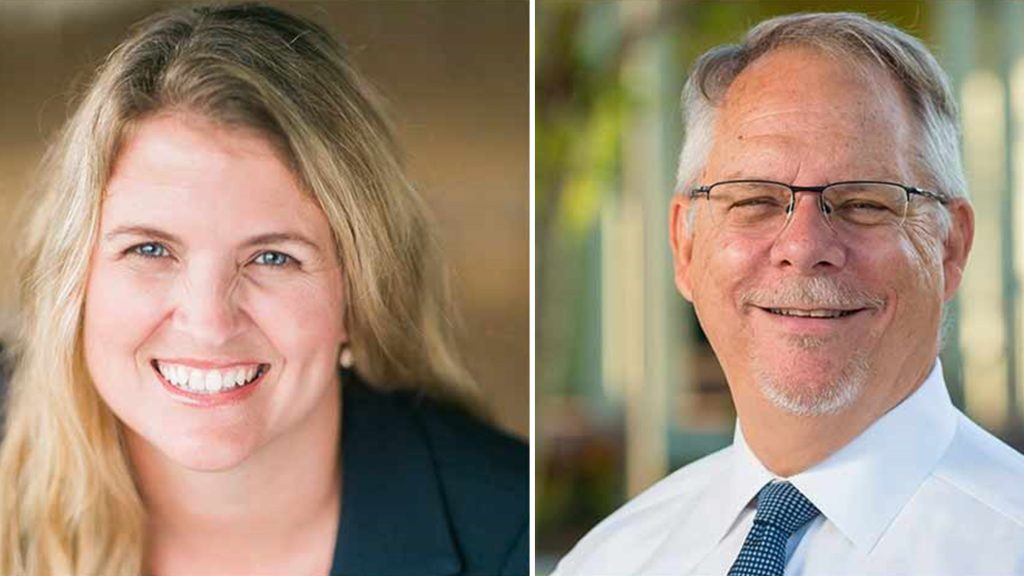
In contrast, Booth had more funding for advertising but struggled to inspire grassroots momentum. The Republican incumbent, Fred Hawkins, had easily won District 35 by 11 points in 2022. Yet Keen managed to flip the seat just a year later with a 14-point swing towards Democrats.
Changing Political Landscape
Keen’s victory in the special election for Florida House District 35 represents a significant shift in the political landscape of Central Florida. As Dr. Jim Clark, UCF professor and political analyst, noted, the district went from a safe 11-point Republican win in 2022 to a 3-point Democratic victory in 2024 – a substantial 14-point swing.
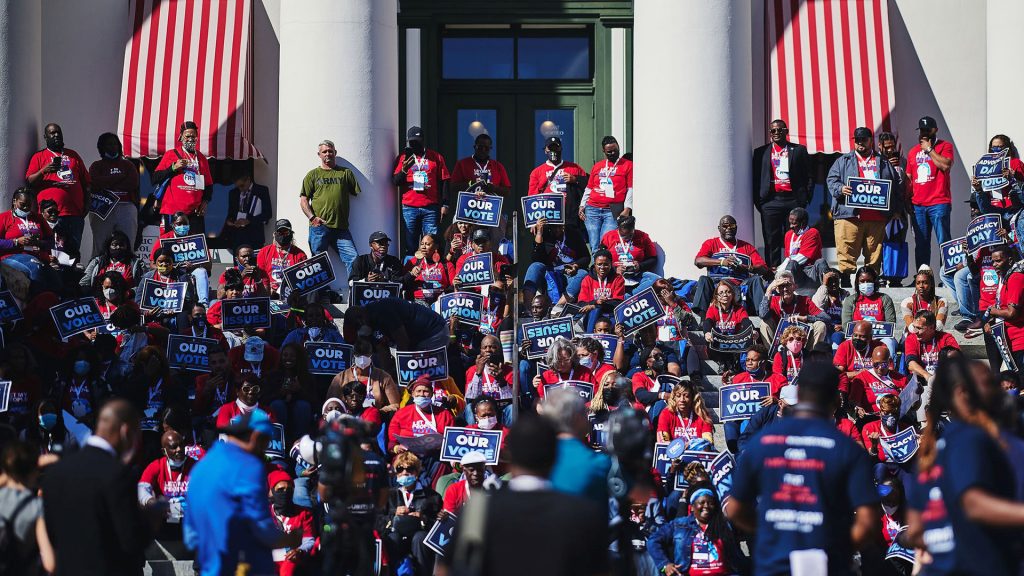
Several key factors contributed to this upset. Keen assembled an impressive grassroots campaign with hundreds of volunteers making calls, knocking on doors, and turning out supporters. Outreach efforts like these can prove decisive even against a well-financed opponent. As Florida Democratic Party Chair Nikki Fried stated, Keen’s win provides “a model that we can then replicate across the state.”
Voter Demographics
The special election victory of Democrat Tom Keen in Florida House District 35 (HD35) provides important insights into shifting voter demographics in this region of Central Florida. HD35 encompasses parts of East Orange County and East Osceola County.
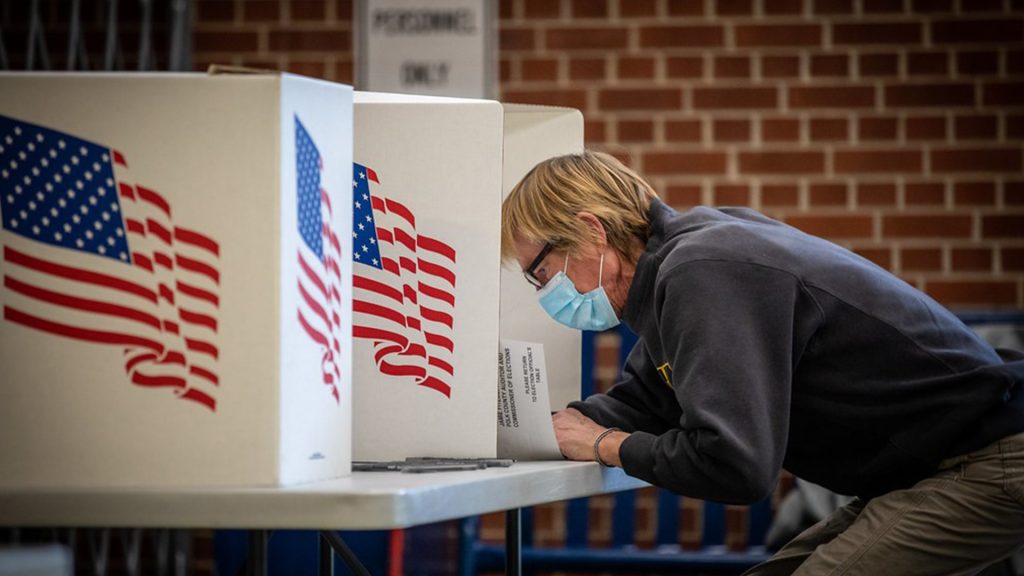
Keen won the majority of votes in the more populated Orange County portion of HD35. His opponent, Republican Erika Booth, carried the smaller Osceola County section. However, Republican voters overall still slightly outnumbered Democrats in HD35 – 44.2% vs 39.8%.
Voter Turnout
According to data consultant Matthew Isbell, Republican voters accounted for 44.2% of the vote in Florida House District 35, while Democrats only represented 39.8% of the voters. The remaining 16% were no party affiliation (NPA) voters.
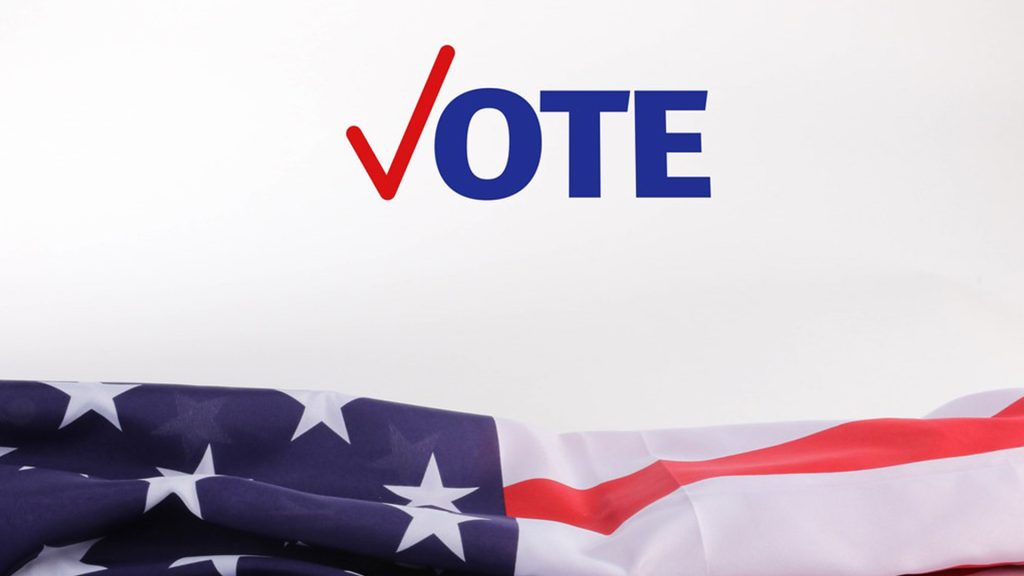
Republicans turned out in higher numbers overall, but the majority of NPA voters supported Democratic candidate Tom Keen. This indicates that while Republicans had more dedicated partisan voters, Keen was able to garner crossover support from unaffiliated and potentially moderate Republican voters.
Key Issues: Property Insurance
Keen made property insurance a centerpiece of his campaign. He held multiple listening sessions to understand constituents’ struggles with unaffordable premiums. His grassroots engagement on this topic appears to have resonated strongly.

Polling reveals property insurance is a top concern for Florida voters this legislative session. The issue crosses partisan lines, impacting homeowners regardless of political affiliation. Keen’s opponent did not match his emphasis on addressing property insurance challenges. This contrast likely amplified the issue’s importance for undecided voters.
Key Issues: Abortion
Abortion rights emerged as a key issue in this month’s special election for Florida House District 35. Democrat Tom Keen focused his campaign, in part, on the pending constitutional amendment that could allow abortions in Florida up to fetal viability. This contrasted with the state Republican party’s push for greater abortion restrictions.
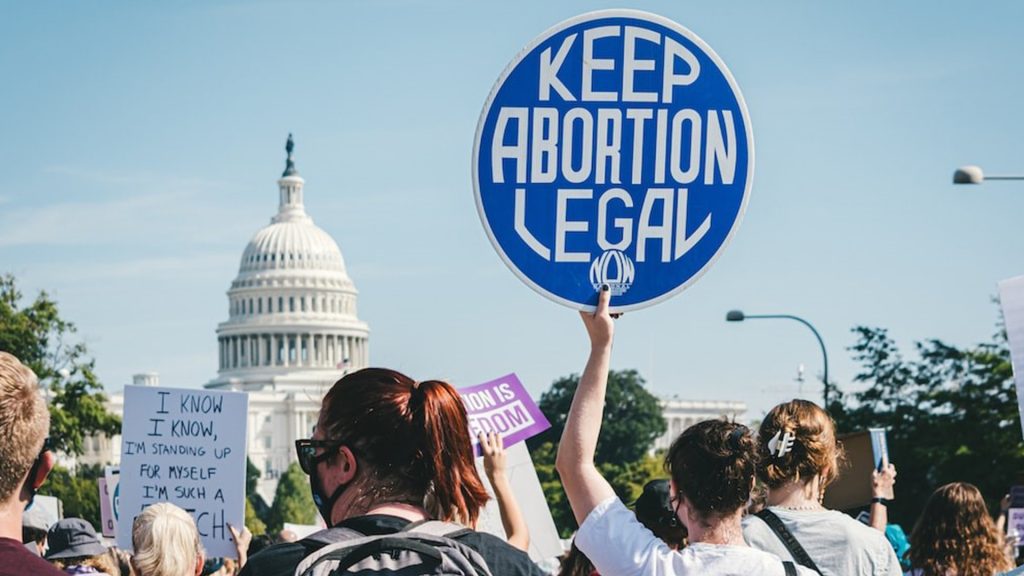
With the amendment potentially on the November ballot, Democrats hope to boost voter turnout, especially among women. Similar ballot measures in other states have mobilized Democratic supporters. The outcome of the special election suggests this strategy could succeed.
Volunteer and Grassroots Efforts
The Florida Democratic Party invested heavily in Keen’s campaign, deploying high-profile party leaders like Rep. Maxwell Frost and local county chairs to assist with voter outreach. With their support, Keen was able to rally hundreds of enthusiastic volunteers to make phone calls and canvass neighborhoods.

By prioritizing direct voter contact through canvassing and phone banks, Keen’s field team was able to drive impressive volunteer participation. The campaign provided the infrastructure for volunteers to have meaningful conversations with voters about the issues.
Campaign Strategy
Keen benefitted from an army of hundreds of volunteers knocking on doors, making phone calls, and sending texts to identify and turn out sympathetic voters. This personal outreach helps create a genuine connection with voters that slick TV ads cannot match.
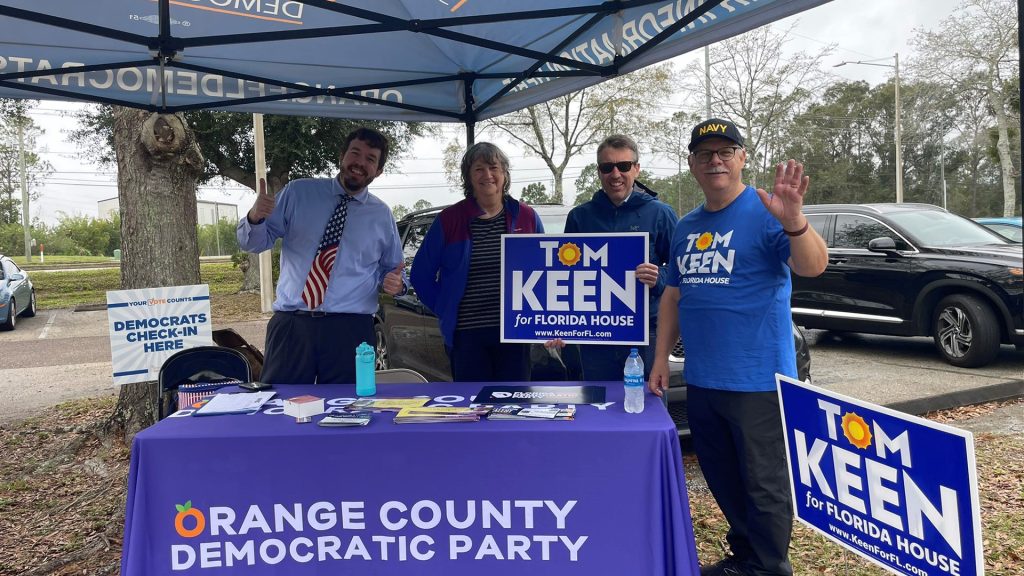
The campaign hammered home messages around property insurance reform and abortion access that resonated strongly with voters. Democrats running in 2024 would be wise to drive home kitchen table issues that impact voters’ day-to-day lives.
Political Implications
The Keen campaign had an army of 200-300 volunteers going door-to-door to get out the vote. This shows the power of grassroots engagement. The campaign focused on property insurance and abortion – two issues that clearly resonated with voters.

As seen in polling, property insurance is a major concern for many Floridians. Abortion will likely drive Democratic turnout. Despite more registered Republicans voting, Keen swayed No Party Affiliation voters by a wide margin. If Democrats can replicate this swing statewide, they could gain ground.
Challenges for Republicans
As the top issue for many Floridians, the inability to resolve the property insurance crisis poses political risks. Premiums have risen exponentially, and several insurers have left the state market. Voters expect legislative solutions, but previous reforms failed to restrain costs. Without progress, Republicans may take blame for ongoing coverage and affordability problems.

The overturning of Roe v. Wade shifted the terrain on abortion access. A proposed 15-week ban in Florida could energize Democrats in tight races. Several Republican lawmakers face pressure to support new restrictions preferred by the party base. Navigating these cross-currents around reproductive rights legislation requires political dexterity.
State of the Florida Democratic Party
The Florida Democratic Party (FDP) has faced significant challenges in recent years after experiencing substantial declines in registered voters and electoral defeats. Since 2020, the FDP has lost hundreds of thousands of registered members, with some becoming NPA voters and others even switching their affiliation to the Republican Party.

This mass exodus of Democratic voters has resulted in Republicans overtaking Democrats in 2021 for registered party members in Florida for the first time in over a century. The growth in registered Republicans, combined with poor Democratic turnout in midterm and statewide elections, led analysts to declare Florida a reliably red state in 2022.
Looking Ahead: Funding and Candidates
The Florida Democratic Party faces significant challenges going forward, but recent victories provide a blueprint. After the 2022 elections, many wrote off the state party. However, the Jacksonville mayoral race and now House District 35 demonstrate momentum.
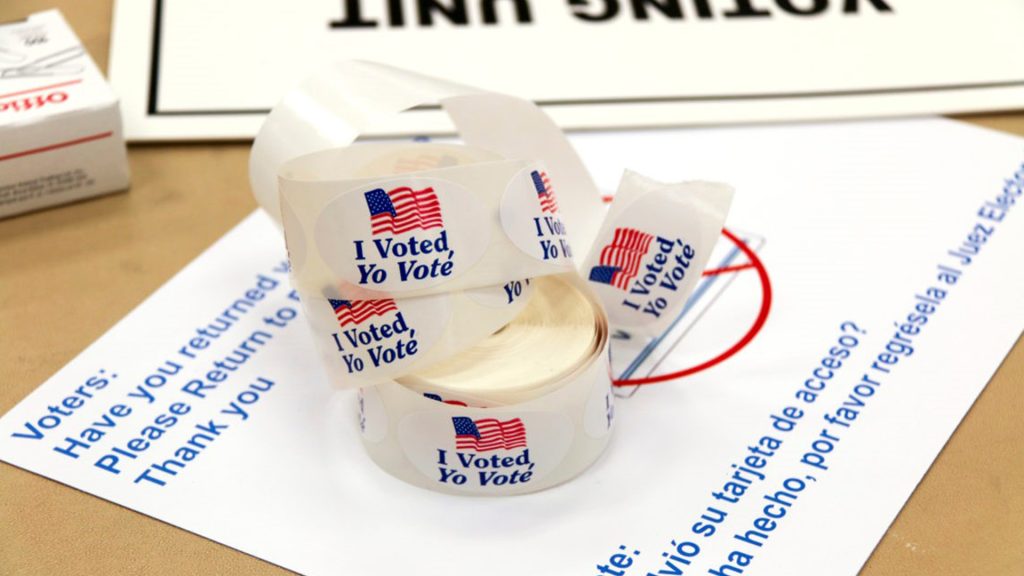
The House District 35 race proved that a robust volunteer-driven ground game can counteract a funding disadvantage. Still, money remains essential, especially for broader statewide and legislative races. The state party must convince previous major donors to renew support and prime the pump for further grassroots fundraising. Seeding resources to showcase incremental progress will be key to rebuilding viability.
Recruiting Strong Candidates Committed to Competing Everywhere
Florida Democrats have struggled recently to field competitive candidates. The priority must be aggressively recruiting talented, committed individuals for all offices. While some districts may remain out of reach, the party pledges to compete statewide. With the right candidates and issues like property insurance and abortion rights, they aim to appeal to moderates and independents disenchanted with the GOP.
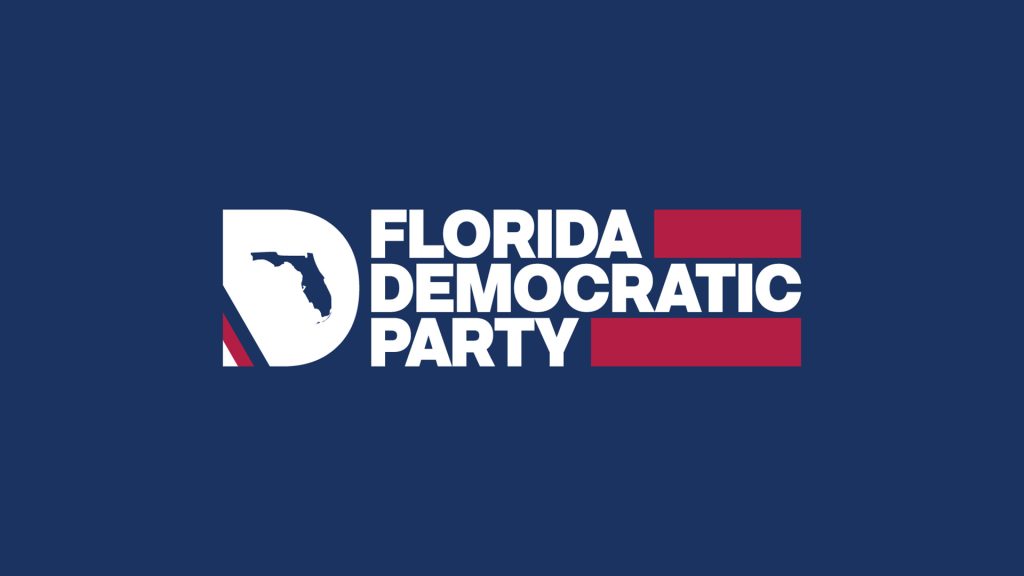
Sustainable party revitalization will take time. However, the House District 35 flip demonstrates meaningful progress. Backed by donor funding and grassroots enthusiasm, competitive candidates positioned on salient issues can still resonate with Floridians. By following this successful blueprint, the future may prove brighter for Florida Democrats.

